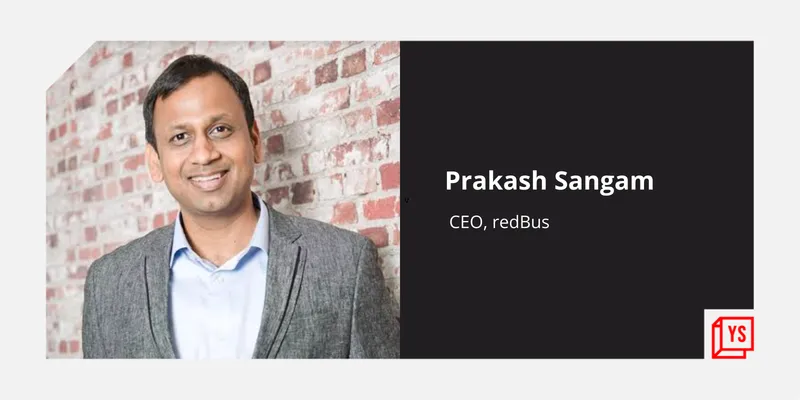Startup news and updates: daily roundup (April 12, 2022)
YourStory presents daily news roundups from the Indian startup ecosystem and beyond. Here's the roundup for Tuesday April 12, 2022.
KPMG-Scaler commissioned report highlights the impact of upskilling on the Indian IT ecosystem
Bengaluru-based edtech startup for upskilling students and working professionals, , on Tuesday announced the release of KPMG commissioned "Scaler Placement Assessment Report", capturing the impact of upskilling on the Indian IT ecosystem. The report revealed that the Indian software engineers are witnessing tremendous career growth and finding meaningful employment opportunities after undertaking upskilling courses like Scaler.
The KPMG-Scaler report highlighted the majorly impacted industries with this boom in upskilling and they were technology solutions with an intake of 14.1 percent professionals, financial technologies with 13.9 percent, ecommerce and retail with 13.7 percent, and consumer tech, which witnessed employment of 8.2 percent of upskilled professionals. Scaler also listed the top 25 employers for upskilled professionals across India, with Amazon, Microsoft and Delhivery in the top three.

According to the official statement, over the last three years, professionals after upskilling (through Scaler programs) have witnessed over a 126 percent increase in their salaries across 2087 graduates. Scaler learners have witnessed a mean salary of Rs 21.6 lakh, a median salary of Rs 17.5 lakh and a placement rate of 93.5 percent. The highest domestic salary achieved by Scaler learners’ stands at Rs 3.03 crore. The average salary for learners who had six to 10 years of work experience is Rs 31.9 lakh, while learners with more than 10 years of experience received packages averaging atRs 57.1 lakh.
Abhimanyu Saxena, Co-founder, Scaler and , said,
"Our skilling programmes for software engineers, lasting for merely a year or less, have made a considerable difference to the tech organisations. We have successfully devised a skilling ecosystem that understands the needs of the tech players and created programs that learners can undertake part-time, along with their pursuing jobs."
Signzy named winner of IFSCA’s BankTech Hackathon for its unified KYC solution
The International Financial Services Centres Authority (IFSCA) has named one of winners of its ‘Sprint01: BankTech’ Hackathon. Signzy secured the top rank for its Unified KYC Solution. The hackathon was open to all eligible fintechs from across the globe and was one of its kind, being backed by a financial sector regulator.
The other two winners of the hackathon are SBNRI Technologies Private Limited, and EdgeVerve Systems Limited, who won for Retail Banking Products at IFSC and Buyers Credit Optimisation respectively. Signzy and others were granted a prize money totaling Rs 24 lakh.
All three winners will be allowed a direct entry into the applicable IFSCA Regulatory or Innovation Sandbox. They will further receive regulatory guidance and handholding. After a successful exit from the respective Sandbox, they will get an opportunity to set up business at GIFT IFSC.
Ankit Ratan, Co-founder of Signzy said, “We are honoured to receive this recognition from IFSCA for our Unified KYC solution, and this win is dedicated to the larger Signzy team that has worked hard to create one of the best digital KYC and customer onboarding platforms anywhere in the world. We are equally excited to participate in the IFSCA Regulatory and Innovation Sandbox, as we look forward to new opportunities to make a meaningful difference to the growth and evolution of the global fintech industry.”
“Sprint01: BankTech'' under the banner of I-Sprint’21 was launched with a focus on the banking sector and was hosted by IFSCA and GIFT City in collaboration with NITI Aayog. The partners to the Hackathon were ICICI Bank, HSBC Bank, International Centre for Entrepreneurship and Technology (iCreate), Zone Startups, and Invest-India.
Trackon appoints Rajesh Kapase as its CEO
Trackon, a logistics enterprise, has announced the appointment of Rajesh Kapase as its CEO as it continues its transformation into a digital first, technology-driven global logistics service provider.
Rajesh's two decades technology leadership experience in the logistics and supply chain space brings a tech first approach to complex problems resulting in superlative customer solutions as was seen in his last role at Spoton Logistics, the Bengaluru-based logistics startup, now acquired by Delhivery.
On joining Trackon, Rajesh Kapase said, "I am delighted and honored to join Trackon at this exciting time for our employees, customers, and business associates. Our goal as a team is to transform Trackon into a global logistics company by leveraging technology.”
Trackon serves 5,000 pin codes every day, which is expected to reach 10,000 pin codes over the next few years. At present, it handles over two lakh consignments every day, and this number will grow to 3.5 lakh by next year. Trackon's premium product - Prime Track, which guarantees bluechip service and prompt delivery, catering to high value and urgent consignments, is expected to drive significant growth going forward.
Healthtech startup Mosaic Wellness announces Fellowship Program
Mumbai-based , a health and wellness startup running digital health clinics Man Matters for men’s health and Be Bodywise for women’s health, on Tuesday announced that it has launched the Mosaic Fellowship Programme - a full-time annual programme for graduates to join them and learn how to build a digital-first business in India.
The programme aims to nurture and build an entrepreneurial mind-set among Indian youth. This is a full-time, paid one-year programme that offers learning opportunities about entrepreneurship and operating roles in startups with the apprenticeship model of training at its core.
The selected fellows will be involved in running initiatives aligned with the brand’s business objectives in various business functions like product, category management, operations, supply chain, telehealth, sales, and marketing. The programme will select and handpick graduates every year and give them four rotational stints across various functions.

The selected students will gain access and will be mentored by Mosaic’s leadership team who are and have built game-changing businesses. Through the fellowship, they will learn how to become a better leader, grow businesses, and develop a network of support for this roller coaster ride we call entrepreneurship. The Fellows will get an opportunity to work closely with the entire leadership team at Mosaic Wellness. After the successful completion of the fellowship, everyone can pick up a P&L with the organization.
Revant Bhate, CEO and Co-founder of Mosaic Wellness, said,
“This programme will prepare young graduates to take on large problem statements and solve them with ease. This enables a steep learning curve, hands-on experience in building and scaling a business, loads and loads of fun, and the immense satisfaction of solving real consumer needs and making a difference.”
The nomination process is open till April 30, 2022 and the startup expects the selection process to be completed by May 15. Anyone who has graduated in 2021/2022 is eligible to apply for the fellowship.
The platform claims that it has done more than 100,000 telehealth consultations a month around various therapeutic areas and now serves more than 200,000 users a month with the products and services.
LazyPay expands pay later service into quick commerce sector
, one of India’s buy now pay later solutions offered by PayU Finance, on Tuesday extended its facility into the growing q-commerce market through its partnership with 10 minute grocery delivery platform, Zepto (which is backed by Y-combinator).
The partnership will offer consumers the convenience of paying later for high-frequency purchases. The startup will provide seamless checkout experience to customers for time efficient transactions, adding further speed and ease to their instant on-demand delivery experience.
Combined with LazyPay’s fast adoption of the buy now pay later (BNPL) solution, the partnership will redefine the grocery shopping experience for Zepto consumers.
Anup Agrawal, Business Head, LazyPay said,
“Online shopping picked up rapidly in India due to COVID-19. However, as the situation normalises, we are seeing continued growth trends and demands from customers, as evidenced by the quick rise of the qcommerce segment. We are very excited to partner with Zepto, given our shared objective for a convenient and hassle-free customer experience.”
“Through this collaboration, we aim to make high-frequency purchases effortless, and we look forward to supporting Zepto to reduce cart abandonment due to failed transactions,” Anup added.
The quick-commerce solution provider Zepto claims that it is adding 100,000 new consumers every week. The collaboration has potential to further accelerate customer adoption of Zepto through LazyPay’s strong customer base.
According to the official statement, in addition to the quick checkout experience, Zepto will also benefit from LazyPay’s near 100 percent success rate, lowering cart abandonment instances. The BNPL payment option will be available to Zepto customers across Delhi, Ghaziabad, Gurugram, Noida, Mumbai, Pune, Kolkata, Bengaluru, Chennai and Hyderabad.
redBus launches a lite-app ‘redRail’ to target Bharat
, a MakeMyTrip group company, and intercity bus ticketing application, on Tuesday announced the launch of a standalone lite-app ‘redRail’, with an aim to enrich the online travel booking experience of millions of train travellers across the country.

redRail, which launched as an in-app feature on redBus late last year in its new independent avatar, will be accessible on all mobile devices including entry-level Android OS smartphones. The app has been designed keeping in view the issues faced by users across the country. For example, it is tested to operate smoothly, and book IRCTC train tickets, even in low internet bandwidth areas, on phones with low memory configuration and those running older Android versions.
Launched currently in English, redRail will soon be available in leading Indian languages so that users can book travel in their native language. Additionally, the app supports UPI payments and multiple gateways including credit card, debit card and net banking for the convenience of travellers.
“The online train ticket booking market, with nearly a million daily transactions across the country, offers a huge opportunity. While there is scope for the growth of online train ticketing across Bharat, the imminent need is to improve the experience of booking tickets online, especially where low internet bandwidth or phone capacity mars the experience. This is where redRail makes a huge difference, being a fast and lite-app and solving extensively for such issues, apart from a host of other user-friendly features,” said Prakash Sangam, CEO of redBus.
“The 65 percent overlap between bus and train travellers works to our advantage as we will leverage the large user base of redBus to push redRail. Our bus ticketing platform has already gained significant leadership in the intercity bus segment, and we will now work towards gaining ground in the online trains category as well,” Prakash added.
On the redRail App, customers can also check PNR confirmation status and live location of the train. The app will keep the user updated periodically when there is material change in the ticket confirmation status.
Edited by Kanishk Singh



![[Funding alert] Healthtech startup PhableCare raises $25M in Series B led by Kalaari Capital](https://images.yourstory.com/cs/2/ba9e8080834311ec9e7e95cb06cf6856/PhableCarefinal-1649672585553.png?fm=png&auto=format&h=100&w=100&crop=entropy&fit=crop)




